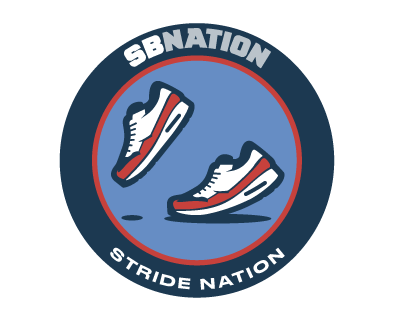That's the thesis of noted sports medicine expert Dr. Tim Noakes' new book Waterlogged, according to a review by Joe Uhan at the excellent I Run Far. Noakes, uh, credits the sports drink industry with convincing runners that they have to drink consistently while out on the roads and trails. (Fancy that!) He also produces a heavy amount of research suggesting that hyponatremia (decreased sodium concentration in the bloodstream) has become a far greater danger than dehydration because of runners' increased fluid intake and makes the case that our bodies are fantastic at telling us when we need water and otherwise regulating our sodium levels. When we drink past thirst, on some rigid schedule, we flirt with danger ... especially on very long runs.
Hydration is something I struggle with. I drink a lot of water on most days (even when I haven't run), like 10+ glasses in addition to a pot of coffee and other fluids with something called an ABV%. But I don't like to drink a whole lot right before or during a run. I hate the sloshing feeling and sound to the point of near-queasiness, and I'm hilariously bad at the whole Dixie cup-to-mouth thing during races. More water ends up in my rose than in my stomach. I do carry an Amphipod on all runs longer than 10 miles (including during races) or whenever it's high 80s or so. But I would say I underhydrate compared to normal before and during runs. I certainly don't have multiple bottles necessitating a belt, and the idea of taking water at all 37 aid stations at a marathon makes me dizzy.
But because hydration is so championed by ... well, everyone, I always fear I'm not getting enough, and that it results in worse performance or recovery.
So I've made a concerted effort to drink more, stopping at parks to refill, tracking down cup-to-mouth strategies, etc. I had been planning to regularly take water during the S.F. Marathon next weekend after taking none but the 20 oz. in my Amphipod (plus about 6-8 more after a late refill) at CIM.
Until I read about Dr. Noakes' research.
Now, maybe I'll continue to self-regulate. Having a handheld during a race represents some great freedom: if I feel thirst between aid stations, I can take a swig. If I'm near an aid station, or if seeing an aid station approach makes me think about it and I realize that, "hey, I'm thirsty!" I shall (try to) drink. When the race is over, I will drink. Beer. Beers.
So much of running is trial and error. (Mostly error, for some of us.) But having research like what Dr. Noakes presents helps, I think, guide our personal experimentation. Hydration is one of infinite variables in running, it seems, but it's arguably one of the most important. More evidence-based knowledge on the subject is absolutely a good thing. But with all things in running, it comes down to figuring out how that fits us individually.
